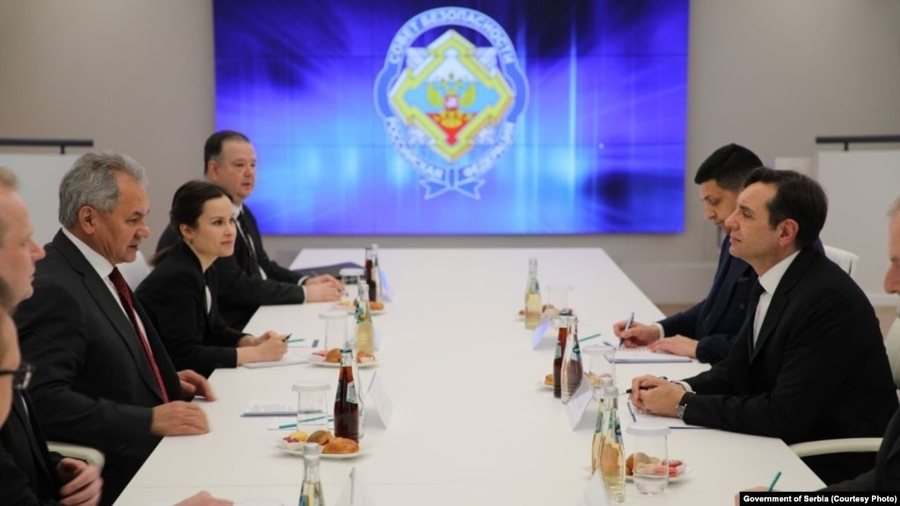
Serbian Deputy Prime Minister Aleksandar Vullin and Russian National Security Council Secretary Sergei Shoigu said on Tuesday they would intensify dialogue aimed at countering "color revolutions."
In the announcement of the Serbian Government, published after the meeting between the two officials in Moscow on February 18, it was stated that "the Russian side expressed its readiness to continue supporting the fraternal people of Serbia in maintaining stability."
"The categorical rejection of foreign interference in the internal affairs of sovereign states has been confirmed," the statement said, among other things.
The statements by Serbian and Russian officials about "color revolutions" come at the height of mass protests in Serbia, as demonstrators have been demanding responsibility for the deaths of 15 people from the collapse of a concrete shelter at the Novi Sad Railway Station for more than three months.
Serbian President Aleksandar Vučić said on February 15 that there are attempts at a "color revolution," without specifying who he was referring to, but he claims that "three billion euros" have been invested in the overthrow of the state.
The "color revolution" actually refers to changes in authoritarian regimes in the former Soviet Union, such as the Orange Revolution in Ukraine in 2004-2005.
After the meeting between Vulin and Shoigu in Moscow, it was announced that the parties agreed to continue contacts through the Security Council of the Russian Federation "in the interests of strengthening the traditional friendly ties between Serbia and Russia, as well as the peoples of the two states."
A day before the Vulin-Shoigu meeting, meetings were held in Moscow between Russian Foreign Minister Sergei Lavrov and Serbian Foreign Minister Marko Djuric.
After that meeting, Lavrov stated that Russia condemns the interference of other countries, mainly Western ones, in the internal political processes in Serbia.
"[Serbian President Aleksandar] Vučić has presented concrete facts about the harsh interference of foreign states in the internal political processes in Serbia. We condemn this practice and insist that the principle of non-interference in internal affairs be strictly observed by everyone, and above all by our Western colleagues," Lavrov said on February 17.
The European Union has reacted after the Lavrov-Đurić meeting, demanding that Serbia, as a candidate country for membership in the European Union, refrain from actions and statements that are contrary to the EU's foreign policy.
Serbia, along with Turkey, are the only candidate countries for EU membership that have not joined the European bloc's sanctions against Russia. /REL (A2 Televizion)











